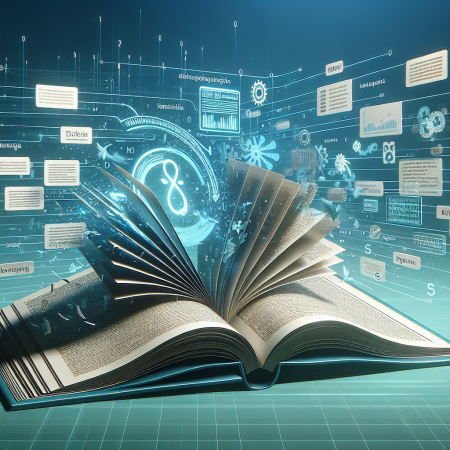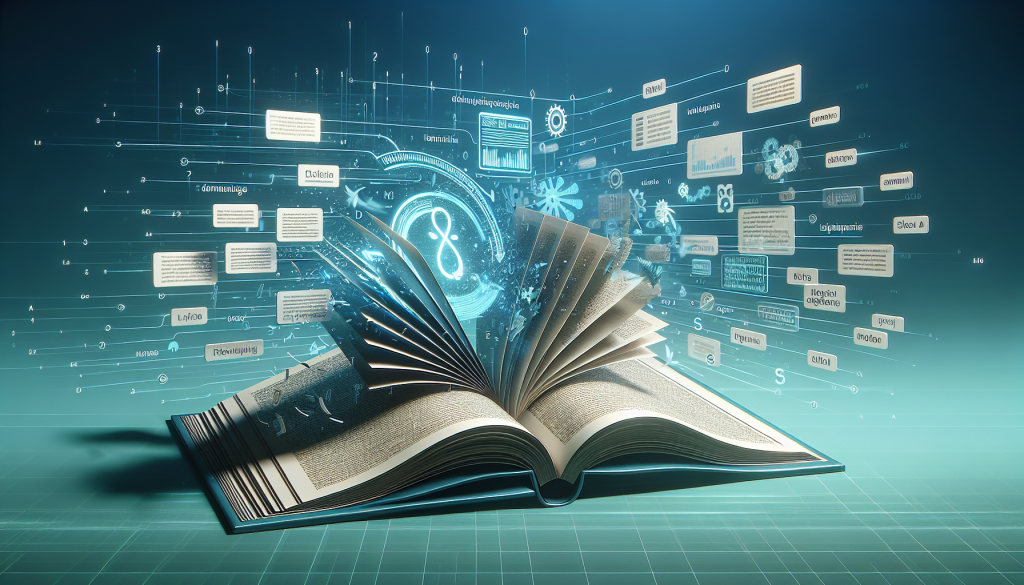Understanding Technical Translation
Technical translation is a specialized field that requires a unique set of skills and knowledge. It is particularly important for businesses and organizations operating in global markets.
Definition and Importance
Technical translation refers to the translation of specialized texts that contain technical terminology, such as manuals, patents, and scientific articles (Phrase). It involves precise translation of technical terms and requires a deep understanding of the subject matter.
The importance of technical translation services lies in their ability to bridge language barriers, allowing companies to communicate effectively with their international customers and partners. It ensures that technical information is accurately conveyed and understood in different languages and cultures. This is crucial in ensuring the safety and effectiveness of products and services in global markets.
Challenges and Solutions
Technical translation poses several challenges. These include the need for translators with specific subject matter knowledge, the complexity of technical terminology, and the need to maintain consistency in terminology across different documents and languages (Phrase).
For instance, translating complex scientific articles or patents requires a deep understanding of the topic, familiarity with industry-specific jargon, and the ability to accurately translate these into the target language.
Addressing these challenges often requires the use of specialized tools and resources to ensure accuracy and efficiency. In addition, the selection of a suitable translation service, such as certified translation services, can be crucial in ensuring that the translation is both accurate and appropriate for the target audience.
In the following sections, we will explore the skills required for technical translation, the role of tools in this process, and how to select the right translation service for your needs.
Skills Required for Technical Translation
Technical translation is a specialized field that requires a unique blend of skills. The translators need to possess not only linguistic proficiency but also a deep understanding of the subject matter and excellent writing abilities. Let's delve deeper into these key skills required for successful technical translation services.
Language and Cultural Expertise
Language proficiency is a crucial aspect of technical translation. Translators need to have advanced, near native level knowledge of their source language to fully understand the text and avoid misinterpretation (Pactranz).
Beyond language mastery, in-depth cultural knowledge of both the source and target cultures is also required. This includes understanding of general cultural nuances and culture-specific aspects. This cultural expertise allows translators to adapt the content in a way that resonates with the target audience, ensuring the translation is not only accurate but also culturally appropriate.
Subject Matter Knowledge
Technical translators require expertise not only in translating languages but also in the specific subject matter. They need to understand the technical terminology and concepts involved in the documents being translated.
This could involve knowledge in fields such as engineering, medicine, law, and more. For example, a translator working on a medical document translation would need to be familiar with medical terminology and concepts. Similarly, a patent translation services would require knowledge of legal and technical language.
Writing and Quality Assurance Skills
Translators also need to possess excellent writing skills. They must be able to write with flair and effectively convey meaning in their target language (Pactranz). This goes beyond literal translation and involves crafting a text that reads naturally in the target language while preserving the original message.
In addition to this, accuracy is crucial in technical translation, as even a small error can have significant consequences, especially in industries such as engineering or medicine (Scriptis). This underscores the importance of quality assurance skills, including meticulous proofreading and editing.
In summary, a proficient technical translator is a linguist, a cultural expert, a subject matter expert, and a skilled writer all rolled into one. When selecting a translation service provider, it's important to assess these skills to ensure you choose a certified translator capable of delivering high-quality technical translations.
Role of Tools in Technical Translation
In the realm of technical translation services, the use of specialized tools is vital to ensure efficiency and consistency in the translation process. These tools, such as translation memory systems and terminology databases, streamline the translation process and help maintain accuracy across different documents and languages (Scriptis).
Translation Memory Systems
Technical translation often requires the translation of complex documents with repetitive content. This is where translation memory systems come into play. These systems store previously translated segments for reuse, significantly increasing efficiency and maintaining consistency.
Translation memory systems are particularly useful in technical translation, as they allow translators to leverage previously translated content. This not only ensures consistency across documents but also saves time by reducing the need for retranslation of similar content. Translation memory systems are a key asset in maintaining the high standards of certified translation services.
Terminology Databases
Terminology databases, on the other hand, are essential in technical translation to ensure the accurate and consistent use of specialized terms across different documents and languages.
These databases provide translators with a centralized source of approved terminology, ensuring consistency and accuracy in the translation of technical terms. This is particularly important in fields like law, medicine, and engineering, where precise terminology is crucial. Thus, terminology databases play a significant role in specialized translation services like legal document translation, medical translation services, and patent translation services.
The use of these specialized tools in technical translation services is crucial in today's fast-paced, globalized world. They aid in maintaining consistency, improving efficiency, and ensuring precise translations, making them invaluable assets in the field of technical translation.
Demand for Technical Translation Services
The increasing need for technical translation services is a direct result of globalization and the expansion of international markets. As businesses strive to reach a wider audience, the role of technical translation becomes even more significant, ensuring effective communication across language barriers.
Impact of Globalization
Globalization has transformed the way businesses operate, making cross-border communication a necessity. The technical translation services play an instrumental role in this regard, enabling businesses to convey their message accurately and effectively in various languages. As per Scriptis, the demand for these services is growing due to the global nature of many industries and the need to communicate effectively across language barriers. The CCJK also aligns with this, stating that the demand for technical translation services is increasing rapidly due to globalization and the expansion of international markets.
Industries Benefiting from Technical Translation
Several industries rely heavily on technical translation services to cater to their international client base and ensure seamless communication. Some of these industries include:
- Automotive Industry: This industry requires technical translation services for translating product manuals, software, and marketing materials to cater to global customers.
- Manufacturing Industry: It relies on these services for translating product specifications, user manuals, and safety regulations to ensure effective communication with foreign clients and partners (CCJK).
- Information Technology Sector: This sector needs technical translation services to translate software programs, IT documentation, and technical support materials to serve global customers.
- Medical and Healthcare Industry: It requires these services for translating medical documents, clinical trial protocols, and patient records to facilitate international collaboration and ensure accurate communication.
Each industry has its unique set of requirements, and a certified translator with expertise in the specific industry can ensure accurate and effective translation. By leveraging technical translation services, businesses can break language barriers, reach a wider audience, and establish a strong presence in the global market.
Comparing Technical and General Translation
When it comes to translation services, it's important to understand the difference between technical and general translation. Both serve unique purposes and require different skills and expertise.
Skills and Requirements
Technical translation involves translating specialized texts that contain technical information and terminology, such as those in medical, engineering, or legal fields. The primary aim is to accurately convey complex and specific information from one language to another, with accuracy being of utmost importance. Therefore, technical translators need subject matter expertise to ensure accuracy in the translation process, as a single mistranslation can have serious consequences in industries where safety and precision are critical.
On the other hand, general translation refers to the translation of everyday texts that do not contain specialized terminology, such as those in tourism, marketing, or journalism. The purpose here is to convey information in a way that is easily understood by the target audience, with fluency and cultural sensitivity being more critical (source). Therefore, general translators need a strong command of both languages and the ability to adapt the text to suit the cultural context of the target language. This includes being aware of idiomatic expressions, cultural references, and other nuances that may not directly translate.
Context and Applications
When considering the right translation service for your needs, understanding the context and application of technical and general translation is important. Technical translation services are crucial for industries that rely on precise, specialized language to communicate complex information. This can include medical translation services, patent translation services, or legal document translation, where accuracy and consistency are paramount.
In contrast, general translation is more commonly used in contexts that require fluency and adaptability rather than strict technical accuracy. This can include areas like journalism, marketing, or tourism, where the primary goal is to communicate information to a broad audience in a way that is engaging and culturally sensitive. For example, voice-over services or video transcription and translation often fall into the category of general translation.
In conclusion, skilled translators can overcome the challenges of technical and general translation to facilitate effective communication and understanding across languages. Choosing the right type of translation based on specific needs and purposes is important. Whether you need a certified translator for a birth certificate translation or a professional to handle software translation, understanding the difference between technical and general translation is the first step towards finding the right service.
Selecting the Right Translation Service
When it comes to technical translation services, choosing the right service provider is crucial. This process involves assessing the translator's expertise, ensuring quality control measures are in place, and evaluating the level of client communication offered by the service provider.
Assessing Translator Expertise
A high-quality technical translator should possess a strong command of both the source and target languages. This includes a deep understanding of the associated cultures, idioms, common expressions, and stylistic nuances. Furthermore, they should have significant experience or training in the specific sector relevant to the translation project.
For example, Language Scientific insists that their technical translators have subject-specific technical backgrounds. The company also requires that all linguists translate only into their native language and possess strong technical writing skills in the target language. This ensures that the translations read as if they were originally written in the target language.
When choosing a technical translation service, make sure to ask about the qualifications and experience of their translators. Whether you need medical translation services, website translation services, or legal document translation, the translator's expertise is crucial to ensuring accuracy and quality.
Ensuring Quality Control
Quality control is essential in technical translations. It helps maintain accuracy and consistency throughout the entire translation process. This is particularly important in technical translations, where accurately conveying complex and specific information is of utmost importance.
When selecting a technical translation service, inquire about their quality control measures. This could include proofreading by a second translator, use of translation memory systems, and regular feedback sessions with the translator. Whether you're seeking patent translation services or telephone interpretation services, a solid quality control process is crucial.
Evaluating Client Communication
Collaborative project management and clear communication with clients are essential for successful technical translations. This ensures that the translations meet the specific requirements and expectations of the client (Mission Translate).
When selecting a technical translation service, consider how they handle client communication. Do they have a dedicated project manager? How do they handle feedback and revisions? Are they responsive and easy to contact?
The right translation service should provide excellent customer service and maintain open lines of communication. Whether you require financial translation services or video transcription and translation, a good working relationship with your translation service provider is key to a successful project.






